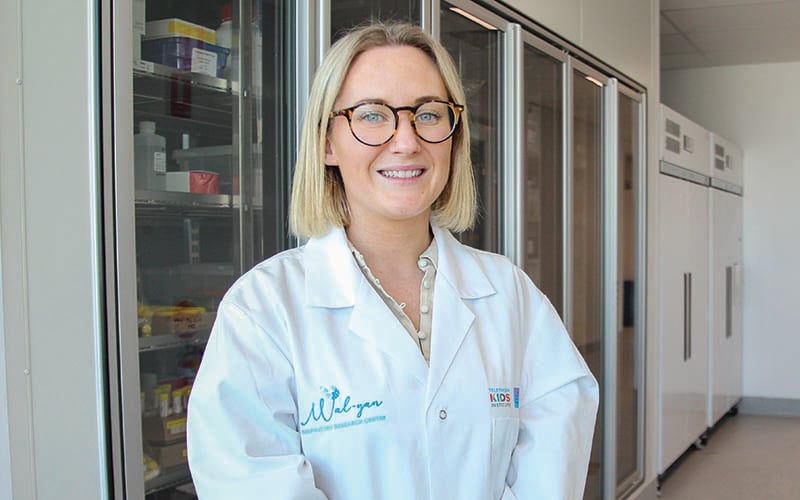Search
Showing results for "clinical trials"

Researchers have made a world-first discovery on how to prevent severe respiratory infections in babies.
Research
Effectiveness of rotavirus vaccines in an Australian population: A case-control studyRV1 and RV5 were both effective in preventing laboratory confirmed and notified rotavirus infections among children aged <5 years
Research
Feasibility and acceptability of the multi-component P3-MumBubVax antenatal intervention to promote maternal and childhood vaccination: A pilot studyThe P3-MumBubVax intervention is feasible and acceptable in the Australian public antenatal setting
Research
A Parent-Mediated Intervention for Newborns at Familial Likelihood of Autism: Initial Feasibility Study in the General PopulationDevelopmental theory and previous studies support the potential value of prodromal interventions for infants at elevated likelihood of developing autism. Past research has supported the efficacy of parent-mediated prodromal therapies with infants from as early as 7 months. We outline the rationale for implementing interventions following this model from even earlier in development and report on the feasibility of a novel intervention developed following this model of parent-mediated infant interventions.
Research
Nurses are underutilised in antimicrobial stewardship - Results of a multisite survey in paediatric and adult hospitalsNurses consider antimicrobial stewardship activities within their roles, but are underutilised in antimicrobial stewardship programs
Research
Hypermasculinised facial morphology in boys and girls with Autism Spectrum Disorder and its association with symptomatologyThis is the first study demonstrating facial hypermasculinisation in ASD and its relationship to social-communication difficulties in prepubescent children
Research
Informing rubella vaccination strategies in East Java, Indonesia through transmission modellingA single dose of rubella vaccine will take longer to reduce the burden of rubella and will be less robust to lower vaccine coverage
Research
Lack of replication for the myosin-18B association with mathematical ability in independent cohortsTwin studies indicate that dyscalculia (or mathematical disability) is caused partly by a genetic component, which is yet to be understood at the molecular...
Research
TOBY play-pad application to teach children with ASD-A pilot trial.To investigate use patterns and learning outcomes associated with the use of Therapy Outcomes By You (TOBY. Playpad, an early intervention iPad application.
Research
Common variation near ROBO2 is associated with expressive vocabulary in infancyIn this paper we conduct a genome-wide screen and follow-up study of expressive vocabulary in toddlers of European descent from up to four studies of the...
